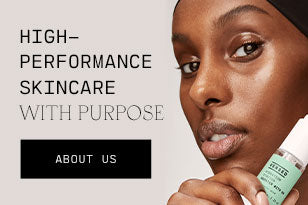
How to Mindfully Apply Your Skincare for a Mental Health Reboot
Most of us think of our daily skincare regimen solely as a physical routine that is vital for keeping our skin looking and feeling healthy. But funny enough, those few minutes you set aside each morning and night to cleanse, treat, and protect your skin have some mental health fringe benefits, too. That’s because any task, ritual, or even chore has the ability to become an act of mindfulness, one of the simplest, most effective therapeutic exercises we can do for our mental health. It’s free, easy to do, and most importantly, scientifically-proven to work.
We all have some sort of skincare routine. We’re all busy. We’re all stressed or even experience anxiety from time to time. We might as well learn how to transform the skincare routine we’re already doing daily into an ongoing mindfulness practice. We talked to the founder and CEO of Unplug Meditation, Suze Yalof Schwartz, about how to do it effectively so we can reap the benefits inside and out.
What Is Mindfulness?
Mindfulness actually stems from Buddhist meditation practices, although it has become a common technique used by therapists, mental health experts, yoga instructors, and more. “Mindfulness is the state of being completely aware of the present moment,” Schwartz tells us. “To practice mindfulness is to do every activity with 100% present moment awareness. For instance, when we brush our teeth or wash our hands, it's the ability to notice all our senses (the sound and feel of the running water, etc.) without being lost in other thoughts.” Essentially it’s the opposite of multi-tasking.Countless scientific studies have proven the positive impact meditation and mindfulness has on our brain, mood, and even physical health, including:
- Less stress, anxiety, and depression
- Stronger interpersonal relationships
- Improved sleep
- Better concentration and focus
- Lower blood pressure
- Healthier eating habits
- Pain relief
How to Do It
Although many choose to practice mindfulness as part of their meditation practice, that isn’t the only option (If you do choose to go the meditation route, however, Schwartz recommends a technique called ‘box breath’ where you “breathe in through your nose to the count of four, hold in the breath to the count of four, exhale to the count of four, and hold the breath out to the count of four”). You can practice mindfulness when you are walking your dog, folding laundry, cooking a meal, and any other activity you can dedicate your full attention to—including your beauty routine. Just keep in mind these 3 tips:Be present
As you go through each step of your skincare routine, take note of what you are seeing, smelling, and touching. How do the pads of your fingers feel on your skin as you are cleansing? What different colors are you seeing? What smells are you noticing? Speaking of, scents like the ylang-ylang essential oil—found in Keep It Supple Body Oil—come with their own set of mental benefits, such as uplifting your mood, giving you all the more reason to take a deep inhale.
Go slowly
The whole point of mindfulness is to allow yourself to slow down and complete tasks with intent. While it’s not always possible for us to go through our daily routine so meticulously, especially when work, children, and other responsibilities are calling our name, start small. Maybe the 60 seconds you use to wash your face is your time to be mindful, or perhaps it's the 10 minutes a week you allot to applying a purifying face mask. Incorporate whatever form of mindfulness works for you within your schedule and, if possible, build from there.
But do not try to control them. “It’s important to note that you will have thoughts because it’s hard to stay 100% present for long, or even short, periods of time. When you notice your mind wandering, which you will, gently and kindly without judgment, bring your awareness back to your breath and the present moment,” Schwartz advises.
Looking for more stress-relieving tips? Check out 10 ways de-stress yourself (and your skin) right now.


